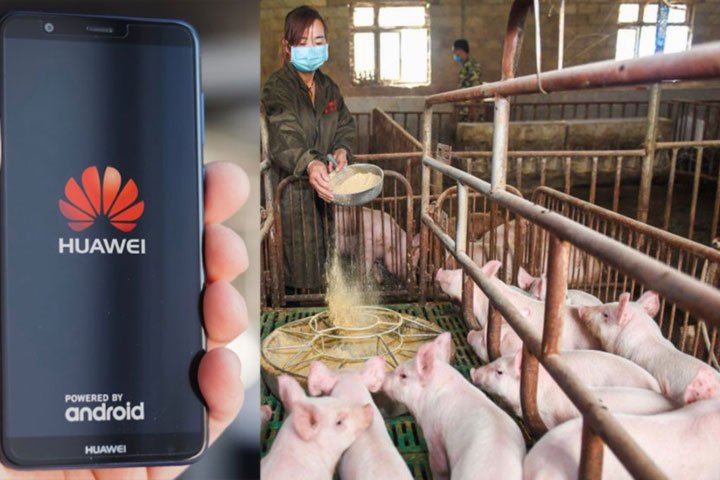To boost small farmers’ India adopts smart farming strategy
India has embraced technology in every field of activity. It is adopting smart farming methods through technology and innovation in the agriculture sector and this may prove to be a game changer in the days to come by substantially raising farmers income.
How is this method beneficial?
Smart farming involves the application of sensors and automated irrigation practices. It can help monitor agricultural land, temperature and soil moisture. This would enable farmers to monitor crops from anywhere.
Moreover, smart farming can help integrate digital and physical infrastructures, which would benefit small farmers.
Agri-based startups can reach out to the farmers and help them gain access to such viable and cost-effective solutions. Agri-based, tech-driven startups have been very innovative in assisting farmers and revolutionising farming techniques. They have also addressed one of the most powerful headwinds (climate change) through climate-smart farming.
In a unique move, the Indian government is implementing a Digital Agriculture Mission (DAM), which includes India Digital Ecosystem of Agriculture (IDEA), Farmers’ Database, Unified Farmers Service Interface (UFSI), funding to the states on the new technology (NeGPA), revamping Mahalanobis National Crop Forecast Centre (MNCFC), Soil Health, Fertility and profile mapping.
According to a report published by the National Association of Software and Services Companies (NASSCOM) in 2019, there were more than 450 argi-based tech-driven startups in India as of 2019. This number has skyrocketed in the last two years as the sector witnessed a surge in investments and funding.
Agri-based tech-driven startups have been very innovative in assisting farmers and revolutionising farming techniques. They have also addressed one of the most powerful headwinds (climate change) through climate-smart farming.
Under the NeGPA programme funding is given to the governments in various Indian states for Digital Agriculture projects using emerging technologies like Artificial Intelligence and Machine Learning (AI/ML), Internet of Things (IOT), Block chain etc. Adoption of drone technologies is being done too. To promote smart farming, the government promotes startups in the agriculture sector and nurtures agri-entrepreneurs.
The ‘Per Drop More Crop’ component of the Pradhan Mantri Krishi Sichai Yojana (PMKSY-PDMC) aims to increase water use efficiency at the farm level through micro irrigation technologies like drip and sprinkler irrigation systems. PMKSY is a scheme initiated by Prime Minister Narendra Modi.
The Indian Council of Agricultural Research (ICAR) promotes innovation, extension and education in agriculture. A total of 1,575 field crop varieties were released for different agricultural crops during 2014-21. During 2014-21, 91.43 crore agri-advisories were provided to farmers through mobiles. ICAR developed 187 mobile apps on different farm and farmer related services during 2014-21.
The agriculture sector plays a vital role in enriching India’s economy. Agriculture accounted for almost 17.8 per cent of India’s Gross Value Added (GVA) in 2019- 20. According to the World Bank’s collection of development indicators, employment rate in the Indian agriculture sector stood at 41.5 per cent in 2020.
From a socio-economic standpoint, agriculture is a vital sector which requires focus and awareness at all levels.
According to India Brand Equity Foundation, the rising population and changing diets have created a huge pressure on land in India. Farmers are struggling to keep up as crop yields level off, soil degradation rises, water shortage increases, biodiversity declines, and natural calamities become more frequent. Furthermore, agriculture accounts for almost 14 per cent of India’s total greenhouse gas emissions.
In the meantime, the NITI Aayog (erstwhile Planning Commission of India) conducted a study entitled “Efficacy of Minimum Support Prices on farmers”, in 2016, which found, among other things, that MSP declared by the government has encouraged 78 per cent of the farmers covered under the study for adopting improved methods of farming such as high yielding varieties of seeds, organic manure, chemical fertilizer, pesticides and improved methods of harvesting etc.
Additionally, oilseeds, pulses and copra of Fair Average Quality (FAQ) are procured from registered farmers under Price Support Scheme of the umbrella scheme of Pradhan Mantri Annadata Aay SanraksHan Abhiyan (PM-AASHA), as per its prescribed guidelines.
The Indian national Budget for 2018-19 had announced the pre-determined principle to keep Minimum Support Price or MSP at levels of one-and-half times of the cost of production. Accordingly, government has increased the MSPs for all mandated Kharif (including wheat), Rabi and other commercial crops with a return of at least 50 per cent over all India weighted average cost of production from the agricultural year 2018-19.
Moreover, India’s National Crop Insurance Portal (NCIP) is the only source of enrolment for Pradhan Mantri Fasal Bima Yojana (PMFBY), on which farmer applications from various designated sources including banks/financial institutions are entered. Specific cut-off dates have been prescribed for enrolment of farmers, debit of premium, remittance of farmers’ premium to concerned insurance company and uploading of data of farmers on NCIP.
The Ministry of Food Processing Industries (MoFPI) has been incentivising setting of food processing industries through central sector umbrella scheme ‘Pradhan Mantri Kisan SAMPADA Yojana (PMKSY), Production Linked Incentive Scheme for Food Processing Industry (PLISFPI) and centrally sponsored scheme ‘PM Formalization of Micro Food Processing Enterprises (PMFME) scheme across all the country.
Under scheme of creation of infrastructure for agro processing clusters, a component scheme of PMKSY, the scheme is aimed at development of modern infrastructure and common facilities to encourage entrepreneurs to set up food processing units based on cluster approach and also to create modern infrastructure for food processing closer to production areas and to provide integrated and complete preservation infrastructure facilitates from the farm gate to the consumer.
Source: Newsroomodisha.com
13 Aug 2022,18:58




















 Live Tv
Live Tv



